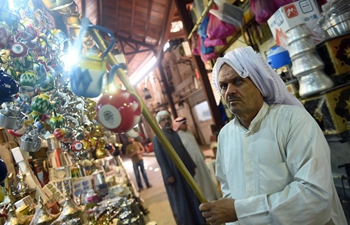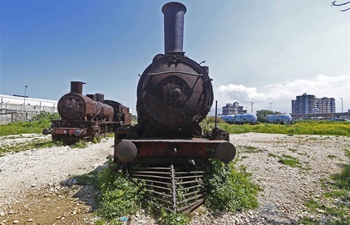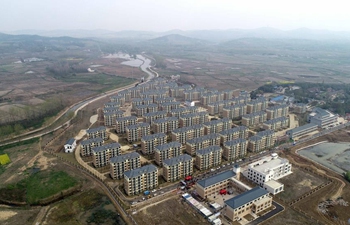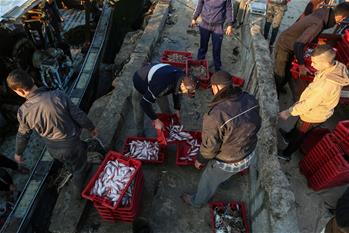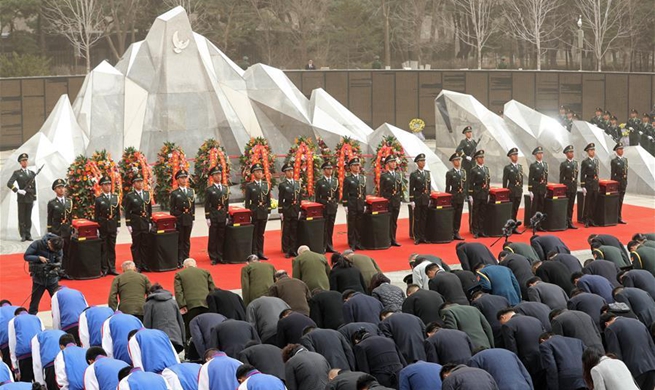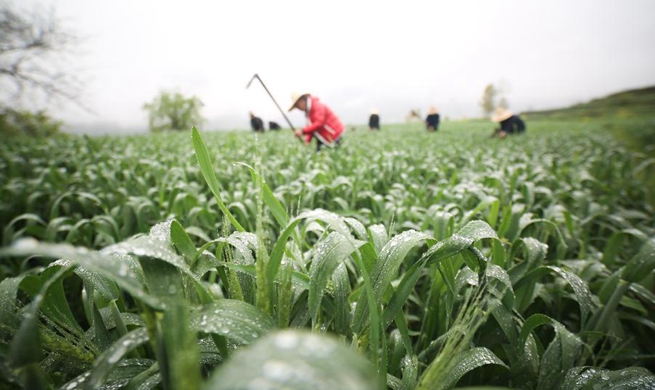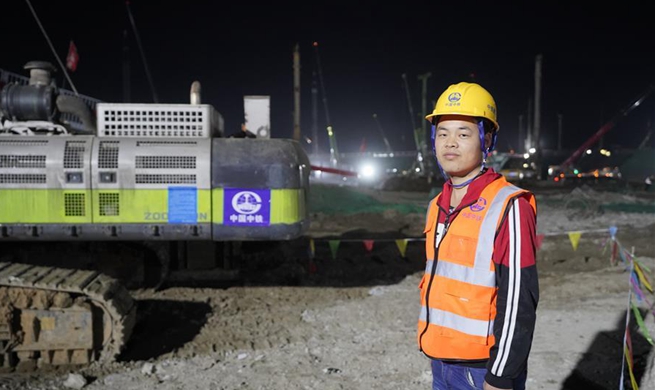JERUSALEM, April 4 (Xinhua) -- Remains of a Jewish settlement from about 2,000 years ago with a rare oil lamp were discovered in the southern Israeli city of Beer Sheva, the Israel Antiquities Authority (IAA) reported on Thursday.
The settlement was found in an archaeological excavation conducted by the IAA and Beer Sheva's Ben-Gurion University. Some of the remains were severely burnt.
The site dates back to 1st century A.D. until the Bar Kokhba revolt, which took place between 132 A.D. and 136 A.D., which resulted in the destruction of many Jewish settlements.
The type of the oil lamp with an ancient Hebrew lampstand is known as the Jewish "southern lamp." After it was cleaned, the decoration of the lampstand was revealed.
Remains of a watchtower, baking facilities, trash pits and an underground system that may have served as a Jewish ritual bath were also found at the site.
In addition, dozens of copper coins were discovered. Most of them were from the Roman rule period over the Land of Israel.
The site contains hidden underground passageways that were used by the Jewish rebels to hide and escape.





